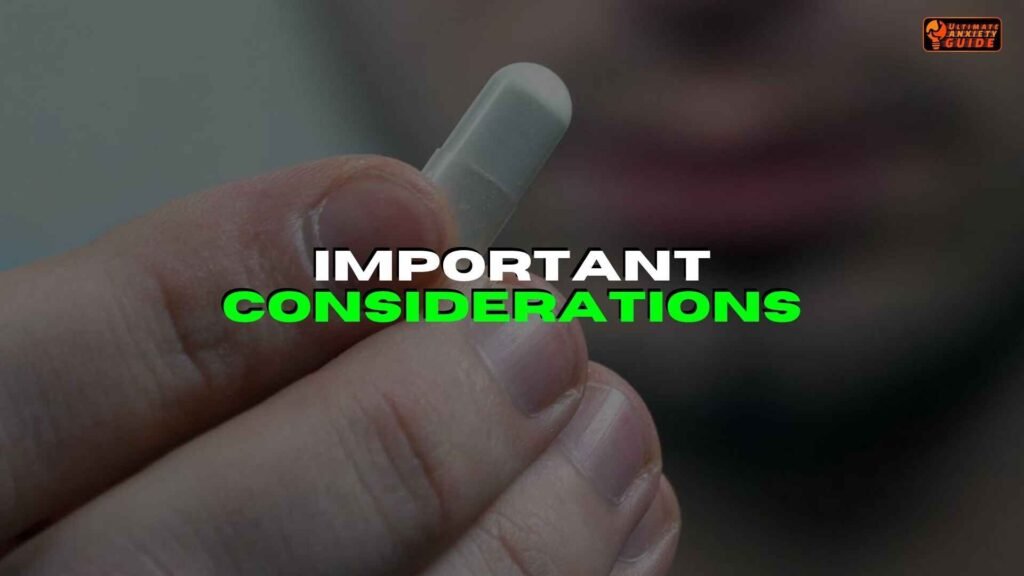Are you worried about Effexor side effects? Discover the top 10 complications you may face and get practical tips to manage them effectively. Plus, explore important interactions, alternative options, and essential usage advice to empower your treatment journey!
So, what exactly is Effexor (venlafaxine)? Well, Effexor (venlafaxine) is a prescription medication primarily used to treat major depressive disorder, anxiety, and panic disorder. It works by increasing the levels of neurotransmitters serotonin and norepinephrine in the brain, which are thought to play key roles in mood regulation. By enhancing the activity of these chemicals, Effexor helps to improve mood, reduce anxiety, and alleviate symptoms of depression.
While it can be effective for many, it’s important to be aware of potential side effects. Some individuals may experience complications that can range from mild to severe, impacting their overall treatment experience. Common side effects include nausea, dry mouth, dizziness, fatigue, and insomnia.
Additionally, some users may face more serious issues, such as increased blood pressure or withdrawal symptoms if they discontinue the medication abruptly. Understanding these potential side effects is crucial for managing them effectively and ensuring a more comfortable treatment journey.
Okay, now that we have the basics covered, let’s dive into all the details. Are you excited to learn more about how to handle Effexor side effects and find effective strategies for managing them? Let’s get started and explore everything you need to know to improve your treatment experience with Effexor!
What is Effexor?

Effexor is a medication commonly prescribed to treat depression, anxiety, and panic disorders. It works by affecting chemicals in the brain, specifically serotonin and norepinephrine, to help improve mood and reduce anxiety. However, like many medications, Effexor side effects can occur, which may include nausea, dry mouth, dizziness, and sweating. It’s important to understand that Effexor side effects can vary from person to person. Some people may experience only mild Effexor side effects, while others could face more serious issues like increased blood pressure or trouble sleeping.
When taking Effexor, it’s important to be aware of any possible Effexor side effects. Common Effexor side effects such as headaches, weight changes, or fatigue may not seem serious at first, but it’s important to keep track of them. Always let your doctor know if any Effexor side effects become bothersome or last for a long time. In some cases, Effexor side effects like confusion or unusual changes in mood might require immediate medical attention. Monitoring these Effexor side effects closely can help manage them before they become more problematic.
Overall, Effexor can be an effective treatment option for those struggling with depression and anxiety. However, being informed about Effexor side effects is important for safe use. By understanding what Effexor side effects to watch for, you can have an open conversation with your healthcare provider to find the best approach to managing them. While Effexor side effects might be a concern, the benefits of improved mood and reduced anxiety often outweigh the negatives.
Top 10 Effexor Side Effects

1. Nausea and Vomiting
Nausea is one of the most common Effexor side effects experienced by people starting the medication. It often begins shortly after you take a dose and can last for a few hours. In some cases, this nausea can lead to vomiting, especially if the body is not used to the medicine yet. This side effect can make daily life uncomfortable, particularly if it continues for several days or weeks. However, this issue usually improves as the body adjusts to Effexor over time.
How to Cope:
To cope with this Effexor side effect, it’s a good idea to take the medication with food to reduce nausea. Eating a small snack or meal before each dose can help calm the stomach. Staying hydrated by sipping water throughout the day is also key to reducing discomfort. Sometimes, making simple changes like avoiding spicy or greasy foods can also lessen nausea and prevent vomiting.
If the nausea becomes too much to handle, consider splitting your doses or switching the time you take Effexor to the evening. This can make the side effect more manageable and less noticeable during your daily activities. Adjustments can make it easier to tolerate the medication as your body gradually adapts to it.
2. Drowsiness and Fatigue
Feeling sleepy or fatigued is another common Effexor side effect. Many people notice a significant drop in energy levels during the day, which can make it hard to focus on tasks or stay alert. This tiredness is more pronounced when first starting the medication, but it may linger for some as long as they are taking Effexor. This side effect can affect work performance or daily activities, especially if you’re unable to stay awake or concentrate as usual.
How to Cope:
If you’re experiencing drowsiness from Effexor, you can try taking your dose in the evening instead of the morning. This way, any feelings of sleepiness can be handled while you sleep at night. Establishing a consistent sleep routine can also help combat this Effexor side effect by allowing your body to adjust. Ensuring that you get enough rest each night is crucial in dealing with daytime fatigue.
For those whose drowsiness continues over time, adjusting the dosage might help reduce the impact. Lowering the dose slightly may prevent this side effect from interfering too much with your day-to-day routine. Always give your body time to adapt as these symptoms often fade after a few weeks.
3. Dry Mouth
One of the less comfortable Effexor side effects is dry mouth. This occurs when your mouth feels constantly dry or sticky, often making it hard to speak or eat comfortably. Many people find this sensation irritating and distracting, especially in social situations or while eating. Dry mouth can also lead to problems like bad breath or a sore throat if left unmanaged.
How to Cope:
To cope with this Effexor side effect, drinking water throughout the day can help keep your mouth moist. Carrying a water bottle with you can ensure you stay hydrated and reduce the severity of the dryness. Sucking on sugar-free candies or chewing gum can also stimulate saliva production and provide temporary relief. Additionally, avoiding alcohol and caffeine may help, as these substances tend to make dry mouth worse.
You might also want to include more moisture-rich foods in your diet, such as fruits like watermelon or cucumbers. These can help naturally hydrate your mouth. Over time, as your body adjusts to the medication, the severity of dry mouth should lessen, making it easier to manage this side effect.
4. Increased Sweating
Increased sweating is another uncomfortable Effexor side effect that many people encounter. Some may experience excessive sweating during the day, while others deal with night sweats, waking up drenched in sweat. This side effect can be embarrassing and uncomfortable, particularly when in public or during work. It’s also worth noting that sweating can occur even in cooler environments and isn’t always related to physical activity.
How to Cope:
To manage this Effexor side effect, wearing lightweight, breathable clothing can help keep you cool and reduce sweating. If you experience night sweats, try using moisture-wicking sheets and keeping your bedroom cool. These small adjustments can make a big difference in how comfortable you feel throughout the day and night. Staying hydrated is also crucial since sweating can lead to dehydration, which may worsen how you feel.
In cases where sweating becomes difficult to handle, consider reducing stress and anxiety through relaxation techniques. Meditation or light exercise may help regulate body temperature and ease this side effect. Additionally, adjusting the timing of your doses can sometimes help reduce excessive sweating, making it easier to manage in your day-to-day life.
5. Headaches
Headaches are a frequent complaint among people dealing with Effexor side effects. These headaches can range from mild discomfort to more severe, migraine-like pain, which can interfere with your ability to concentrate or complete tasks. This side effect often arises shortly after starting Effexor or increasing the dosage and may persist for a while as the body adjusts to the medication.
How to Cope:
To cope with this Effexor side effect, it’s helpful to stay hydrated, as dehydration can make headaches worse. Drinking water regularly throughout the day can reduce the frequency and intensity of headaches. Additionally, practicing relaxation techniques like deep breathing or light stretching can help ease tension that may contribute to headaches.
If the headaches are severe or persistent, taking over-the-counter pain relief medication can help manage the pain. However, if they continue for an extended period, adjusting the dosage of Effexor might reduce the severity. Over time, most headaches caused by this Effexor side effect tend to fade as the body becomes more accustomed to the medication.
6. Insomnia
Insomnia, or difficulty sleeping, is another common Effexor side effect. Many people struggle to fall asleep or stay asleep after starting the medication. This lack of sleep can leave you feeling tired and irritable during the day. Insomnia can also interfere with your ability to focus and perform daily tasks, making it a frustrating side effect to cope with, especially if it persists.
How to Cope:
To cope with insomnia caused by Effexor side effects, try to establish a relaxing nighttime routine. Avoid caffeine or heavy meals in the evening, as these can disrupt your sleep cycle. It may help to take Effexor in the morning rather than at night, which can reduce its impact on your sleep. Creating a calm and cool sleep environment can also improve your chances of getting restful sleep.
If insomnia continues to be an issue, consider natural sleep aids like chamomile tea or meditation before bed. Consistently going to bed and waking up at the same time can help regulate your body’s internal clock, making it easier to manage this Effexor side effect over time.
7. Weight Gain
Weight gain is a Effexor side effect that some users report. It often happens over time as the medication affects metabolism and appetite. Some people may notice they are hungrier or feel less motivated to exercise, which can lead to gradual weight gain. This side effect can be concerning, especially if you’re trying to maintain a healthy weight.
How to Cope:
To manage this Effexor side effect, focus on maintaining a balanced diet with healthy foods. Incorporating fruits, vegetables, and whole grains into your meals can help you feel full without overeating. Regular physical activity is also important. Even light exercises like walking or yoga can help prevent or reduce weight gain.
If you notice significant weight changes, tracking your eating habits can help you stay aware of any overeating. Consulting with a nutritionist or making small lifestyle adjustments can also make a big difference in managing this Effexor side effect.
8. Sexual Dysfunction
Sexual dysfunction is another Effexor side effect that some users experience. It may present as a decrease in sexual desire, difficulty achieving orgasm, or erectile dysfunction. These issues can affect relationships and lead to frustration or concerns about long-term sexual health. It’s important to address this side effect, as it can affect overall well-being.
How to Cope:
To cope with sexual dysfunction related to Effexor side effects, open communication with your partner is key. Being honest about how you feel can help reduce pressure and build understanding. Trying different methods to maintain intimacy, such as focusing on emotional closeness, may help while dealing with this side effect.
If this problem persists, you can discuss other options with your healthcare provider, who might adjust your dosage or suggest alternative treatments. Over time, your body may adapt, and the severity of this Effexor side effect might decrease.
9. Increased Blood Pressure
An increase in blood pressure is another Effexor side effect to be aware of. For some, the medication can cause a spike in blood pressure, which may lead to complications if left unmanaged. High blood pressure can cause headaches, dizziness, or even more severe issues if not monitored.
How to Cope:
Monitoring your blood pressure regularly is the best way to manage this Effexor side effect. Keeping track of your readings at home with a simple blood pressure monitor can help you stay on top of any changes. If you notice higher readings, adjusting your diet by reducing salt intake and increasing potassium-rich foods can help maintain healthy blood pressure.
Incorporating regular physical activity, like brisk walking or swimming, can also help lower blood pressure. If your blood pressure continues to rise despite lifestyle changes, consult your healthcare provider for further advice on managing this Effexor side effect.
10. Dizziness
Dizziness is a common Effexor side effect that many people experience, especially when starting the medication or increasing the dose. This can make you feel lightheaded, unsteady, or even cause you to feel faint at times. Dizziness may affect your ability to perform daily tasks, and in some cases, it can increase the risk of falling.
How to Cope:
To cope with this Effexor side effect, try standing up slowly when getting out of bed or from a sitting position to avoid sudden dizziness. Drinking plenty of water throughout the day can also help, as dehydration can worsen feelings of lightheadedness. Additionally, avoiding alcohol and reducing caffeine intake can lessen this side effect.
If dizziness continues to be an issue, taking Effexor with food may help stabilize blood sugar levels and reduce the symptoms. If it becomes more severe, adjusting the dosage or the time of day you take the medication could help make this Effexor side effect more manageable.
Top 10 Tips to Deal With Effexor Side Effects

Here are the 10 Tips to deal with Effexor Side Effects:
- Nausea: To manage nausea, try taking Effexor with meals to reduce stomach upset. Drinking ginger tea can also be soothing and help settle your stomach. Eating smaller, more frequent meals throughout the day may prevent feelings of nausea associated with Effexor side effects. Staying hydrated is essential, so drink plenty of water
- Drowsiness: If you experience drowsiness, consider taking Effexor in the evening to minimize daytime fatigue. Engaging in regular physical activity can help boost your energy levels throughout the day. Ensuring you get adequate exposure to natural light can help regulate your sleep-wake cycle, making it easier to cope with Effexor side effects. Taking short breaks during the day to move around can also combat drowsiness.
- Dry Mouth: To alleviate dry mouth, stay hydrated by drinking water consistently throughout the day. Chewing sugar-free gum can stimulate saliva production and provide temporary relief from this common Effexor side effect. Eating moist foods and avoiding caffeine can help manage this discomfort. Using a humidifier in your living space can also improve moisture in the air.
- Headaches: To manage headaches, make sure you’re drinking enough water to stay hydrated. Over-the-counter pain relievers can help alleviate headache pain that may arise as an Effexor side effect. Resting in a dark, quiet room can provide relief from discomfort. Keeping a headache diary can help identify triggers and patterns related to your Effexor side effects.
- Insomnia: If insomnia is an issue, consider taking Effexor earlier in the day to promote better sleep at night. Establishing a calming bedtime routine can signal your body that it’s time to wind down. Practices like reading or light stretching before bed can help reduce insomnia, which is linked to Effexor side effects. Avoiding screens and caffeine in the evening may also help improve sleep quality.
- Weight Gain: To manage potential weight gain, focus on maintaining a balanced diet filled with fruits, vegetables, and whole grains. Regular physical activity, even light exercises like walking, can help keep your weight in check and combat Effexor side effects. Paying attention to portion sizes can prevent overeating and contribute to weight management. Keeping a food diary may help you stay accountable.
- Sexual Dysfunction: If you experience sexual dysfunction as an Effexor side effect, open communication with your partner can help reduce anxiety and build understanding. Exploring alternative ways to maintain intimacy may strengthen your relationship despite these challenges. Staying emotionally connected can also help during this adjustment period. Over time, these Effexor side effects may improve as your body adapts to the medication.
- Increased Blood Pressure: To monitor increased blood pressure, check your levels regularly and keep a log of readings. Focus on heart-healthy habits, such as reducing sodium intake and eating a balanced diet rich in fruits and vegetables, to mitigate Effexor side effects. Regular physical activity can also help maintain healthy blood pressure levels. Managing stress through relaxation techniques can further support heart health.
- Dizziness: If dizziness occurs as a result of taking Effexor, take your time when standing up or moving from a seated position to avoid lightheadedness. Staying well-hydrated can help reduce the likelihood of dizziness among Effexor side effects. Avoiding alcohol and minimizing caffeine intake may also alleviate symptoms. When feeling dizzy, sitting or lying down until the sensation passes can prevent falls.
- Sweating: To manage excessive sweating, wear loose-fitting, breathable clothing and choose moisture-wicking fabrics. Staying in cool environments can help minimize discomfort related to Effexor side effects. Drinking plenty of water helps regulate your body temperature and keep you hydrated. Practicing relaxation techniques can also help reduce sweating caused by anxiety.
Effexor Interactions

Effexor can interact with many other medications, which might make Effexor side effects worse or reduce the effectiveness of the treatment. For example, taking Effexor with other antidepressants, like MAO inhibitors, can lead to dangerous Effexor side effects. Similarly, combining Effexor with blood thinners like aspirin or certain painkillers can increase the risk of bleeding, another common Effexor side effect. Always talk to your doctor about other medications you are taking to avoid harmful Effexor interactions and side effects.
It is also important to avoid certain over-the-counter medications or herbal supplements when taking Effexor, as they may trigger Effexor side effects. St. John’s Wort, a popular herbal remedy for depression, may cause increased levels of serotonin, leading to a condition known as serotonin syndrome, a serious Effexor side effect. Effexor side effects such as high blood pressure can also worsen when combined with medications for colds, as many of these contain ingredients that may raise blood pressure. Knowing these possible interactions can help reduce Effexor side effects.
To avoid negative Effexor interactions, make sure to tell your healthcare provider about all the medications and supplements you are taking. This can help them tailor your treatment plan to minimize any Effexor side effects. By staying informed about possible drug interactions, you can prevent serious Effexor side effects from happening. Managing Effexor side effects through proper guidance and communication with your doctor ensures a safer experience with the medication.
Effexor Alternatives

If Effexor side effects are difficult to manage or the medication isn’t effective, there are other antidepressants and anxiety medications to consider. These alternatives include selective serotonin reuptake inhibitors (SSRIs) like Prozac, Zoloft, Lexapro, and Paxil, which may have fewer or more tolerable side effects compared to Effexor. Serotonin and norepinephrine reuptake inhibitors (SNRIs) like Cymbalta or Pristiq are also options, offering similar benefits with different side effect profiles. For some individuals, switching between these medications can make a significant difference in managing both anxiety and depression while minimizing the impact of side effects.
Other potential alternatives include benzodiazepines, such as Xanax, Ativan, and Valium, which are typically prescribed for short-term anxiety relief but come with a higher risk of dependence and different side effects from Effexor. Buspirone, a non-benzodiazepine, is another option for treating anxiety without the sedation risk associated with other anxiety medications. Additionally, medications like Wellbutrin, which works differently from SSRIs and SNRIs, can help manage depression and anxiety with its own set of side effects that may be easier for some to tolerate.
Non-medication treatments can also be effective. Cognitive-behavioral therapy (CBT), mindfulness-based stress reduction (MBSR), or relaxation techniques offer ways to manage anxiety and depression without the risk of side effects. These therapies may complement or replace medication, depending on individual needs. Working with your healthcare provider to explore these alternatives can help you find the best treatment plan with fewer side effects.
When and How to Use Effexor

Effexor is typically taken once or twice daily, depending on your doctor’s instructions. It’s important to follow the dosage guidelines carefully to reduce the risk of Effexor side effects. You can take Effexor with or without food, but taking it with food might help lessen some common Effexor side effects like nausea or stomach discomfort. Be sure to swallow the capsules whole and avoid crushing or chewing them, as this can increase the risk of unwanted Effexor side effects.
Sticking to a regular schedule for taking Effexor is key to reducing the chances of experiencing Effexor side effects. Missing doses or stopping the medication suddenly can lead to withdrawal symptoms, which are another type of Effexor side effect. These may include dizziness, headaches, or mood swings. If you need to stop taking Effexor, your doctor will likely recommend tapering off the dosage gradually to avoid these Effexor side effects.
It’s essential to avoid drinking alcohol while taking Effexor, as it can increase the chances of serious Effexor side effects like drowsiness or confusion. Alcohol can also worsen the symptoms of depression or anxiety, which Effexor is meant to treat. By using Effexor correctly and paying attention to potential Effexor side effects, you can maximize the benefits of the medication while minimizing risks.
Dosage and Administration

Effexor comes in different strengths, and your doctor will decide the best dosage based on your needs. Most people start on a low dose to reduce the chance of Effexor side effects, with the dosage gradually increasing over time. Taking a lower dose at first helps your body adjust to the medication and can prevent severe Effexor side effects like dizziness or increased anxiety. Your doctor will work with you to find the right balance between managing symptoms and minimizing Effexor side effects.
Effexor can be taken once or twice a day, depending on your prescribed dosage. It’s important not to take more than your doctor recommends, as this can lead to serious Effexor side effects such as high blood pressure or irregular heartbeat. Following your doctor’s instructions closely ensures that you get the most benefit from Effexor without risking harmful Effexor side effects. Make sure to take the medication at the same time each day to keep a steady level in your body, which can help prevent some Effexor side effects.
Always talk to your doctor before changing your dosage, as sudden changes can lead to withdrawal symptoms. Stopping Effexor suddenly can cause Effexor side effects like mood swings, confusion, or dizziness. By gradually adjusting your dose, you can avoid these unwanted Effexor side effects. Having a clear plan for dosage and administration helps keep Effexor side effects under control and makes your treatment more effective.
Important Considerations

Before starting Effexor, there are a few important things to consider. Effexor side effects can affect people differently, so it’s important to talk to your doctor about your medical history. If you have conditions like high blood pressure, liver problems, or glaucoma, Effexor side effects may be more serious. Your doctor can help determine if Effexor is the best option for you or if another medication might cause fewer side effects.
Pregnant or breastfeeding women should be cautious about taking Effexor, as some Effexor side effects could potentially harm the baby. Effexor side effects such as low birth weight or withdrawal symptoms in newborns may occur, so it’s crucial to weigh the benefits against the risks with your doctor. Additionally, older adults may be more sensitive to Effexor side effects like dizziness or increased risk of falls, so monitoring for these issues is important.
In summary, taking Effexor requires careful planning and regular communication with your healthcare provider. Understanding how Effexor side effects might affect you personally allows for a more tailored and safer treatment experience. By keeping all these factors in mind, you can reduce the risk of Effexor side effects and ensure the medication works effectively for your mental health.
Conclusion
Effexor is a commonly prescribed medication for treating depression and anxiety, but like any medication, it comes with the possibility of side effects. Understanding the potential Effexor side effects, how to manage them, and being aware of drug interactions is key to making the most of the treatment. Effexor side effects such as dizziness, nausea, or fatigue may occur, but knowing what to expect can help you deal with them.
If Effexor side effects become overwhelming or if the medication isn’t working as expected, discussing alternatives with your doctor is a good option. Exploring different treatments or adjusting the dosage can reduce Effexor side effects while maintaining the benefits of the medication. Keeping an open line of communication with your healthcare provider ensures that Effexor side effects are properly managed and minimized.
Effexor can be a helpful part of managing depression and anxiety, but it’s important to stay informed about its side effects and interactions. By being proactive and aware, you can reduce the chances of severe Effexor side effects and focus on improving your mental health.
Final Thought
Dealing with Effexor side effects might feel overwhelming at first, but understanding the common complications and how to cope with them puts you in control of your treatment. It’s important to remember that these side effects don’t define your journey toward better mental health. With the right approach and support, you can find ways to manage Effexor side effects effectively and still experience the benefits the medication offers. Every challenge has a solution, and by staying informed, you’re already taking the first step toward success.
No matter how difficult some Effexor side effects may seem, it’s crucial to stay positive and keep the bigger picture in mind. Your mental well-being is worth the effort, and with small adjustments and conversations with your healthcare provider, you can minimize these side effects. Everyone’s experience is different, and finding what works for you is key. Remember, progress is often a gradual process, and every step forward counts, no matter how small it may feel at times.
Effexor is a powerful tool in managing anxiety and depression, and while side effects can be part of the process, they are not the whole story. Stay motivated, keep communication open with your doctor, and know that you’re not alone in navigating these challenges. Coping with Effexor side effects may take time, but with patience and persistence, you’re on your way to a brighter, healthier future.
Engage with Us
Alright, dear visitors,
That’s all from my end. As of now, I’d love to hear from you—share your thoughts and experiences in the comments below. For more mental health-related content and updates, stay in touch with Ultimate Anxiety Guide and keep connected. If you want to connect personally, feel free to email us at ultimateanxietyguide@gmail.com.
Thanks a trillion for your time and effort.
Happy Browsing!
FAQs
